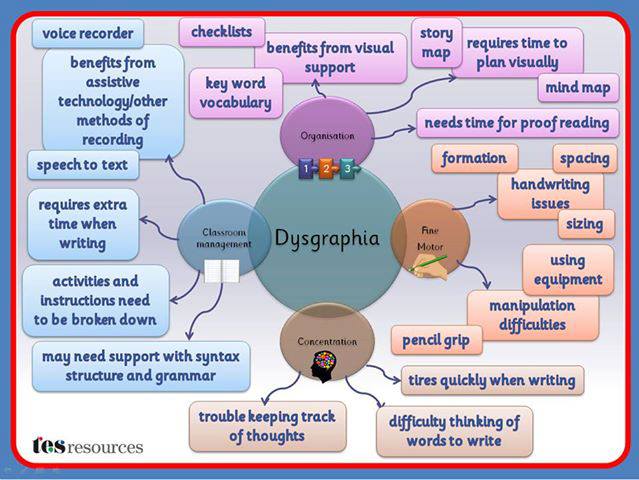 It was 50 years ago this month that the movement to help students with learning disabilities began. Here’s what happened. This post was written by Jim Baucom, professor of education, has been teaching for more than a quarter of a century at Landmark College in Putney, Vermont.
It was 50 years ago this month that the movement to help students with learning disabilities began. Here’s what happened. This post was written by Jim Baucom, professor of education, has been teaching for more than a quarter of a century at Landmark College in Putney, Vermont.
By Jim Baucom
This month, we will commemorate an important historical event that opened doors for generations of students with learning differences and, in essence, may have made Landmark College, where I teach possible. At Landmark, we specialize in teaching students who learn differently, using methods designed specifically for those with dyslexia, ADHD and Autism Spectrum Disorders.
Fifty years ago, on April 6, 1963, a group of concerned parents convened a conference in Chicago to discuss a shared frustration: they all had children who were struggling in school, the cause of which was generally believed to be laziness, lack of intelligence, or just bad parenting. This group of parents knew better. They understood that their children were bright and just as eager to learn as any other child, but that they needed help and alternative teaching approaches to succeed in school.
One of the speakers at that conference was Dr. Samuel Kirk, a respected psychologist and eventual pioneer in the field of special education. In his speech, Kirk used the term “learning disabilities,” which he had coined a few months earlier, to describe the problems these children faced, even though he, himself, had a strong aversion to labels. The speech had a galvanizing effect on the parents. They asked Kirk if they could adopt the term “learning disabilities,” not only to describe their children but to give a name to a national organization they wanted to form. A few months later, the Association for Children with Learning Disabilities was formed, now known as the Learning Disabilities Association of America, still the largest and most influential organization of its kind.
These parents also asked Kirk to join their group and serve as a liaison to Washington, working for changes in legislation, educational practices, and social policy. Dr. Kirk agreed and, luckily, found a receptive audience in the White House. Perhaps because his own sister, Rosemary, suffered from a severe intellectual disability, President Kennedy named Kirk to head the new Federal Office of Education’s Division of Handicapped Children.
In this position, Dr. Kirk helped persuade Congress to write laws requiring schools to provide an appropriate education for children with learning disabilities, and his influence in Washington helped create financing for the training of teachers so students received the expert guidance they needed.
At the time of that historic meeting in Chicago, the most powerful force for change in America was the Civil Rights movement. Today, we would do well to remember that the quest for equal opportunity and rights for all was a driving force for those who desired the same opportunity for their children who learned differently.
Five months after the Chicago meeting, Martin Luther King Jr. led the march on Washington where he delivered his inspiring “I Have a Dream” speech. Twelve years later, The Education for All Handicapped Children Act was enacted, guaranteeing a free and appropriate education for all children.
Special services for students who learn differently began to flourish, giving those who had previously felt little hope an opportunity to learn and succeed in school.
The ripple effect kicked in, and these bright young people set their sights on college, a goal that would have been rare in 1963. This led to the historic founding of Landmark College 27 years ago, as the first college in the U.S. created specifically for students with learning differences.
In Lewis Carroll’s Through The Looking Glass, Humpty Dumpty emphatically declares: “When I use a word it means just what I choose it to mean – neither more nor less.” If only that were true of diagnostic categories, like “learning disabilities.” Our students are bright and creative learners who ultimately show no limitations in what they can achieve either academically or in their professional careers, so we prefer “learning differences.” It’s reassuring to know that even Dr. Kirk thought the term did not fully capture the capabilities and needs of these unique learners.
At our campus celebration, we won’t parse labels, or any other words for that matter. But instead, we will recognize the actions taken by a small group of concerned parents gathered in Chicago a half century ago who only wanted their children to receive a better education. Today, we call that advocacy and it’s worth celebrating.

 The start of the school year is a busy time for students, parents and teachers alike. This guide will help you better advocate for the needs of your child with LD so she isn’t lost in the shuffle. Learn how – and why – to become an effective advocate and ally for your child with LD. From understanding your child’s disability and special education law, to managing your emotions, to communicating effectively, this guide covers it!
The start of the school year is a busy time for students, parents and teachers alike. This guide will help you better advocate for the needs of your child with LD so she isn’t lost in the shuffle. Learn how – and why – to become an effective advocate and ally for your child with LD. From understanding your child’s disability and special education law, to managing your emotions, to communicating effectively, this guide covers it!



